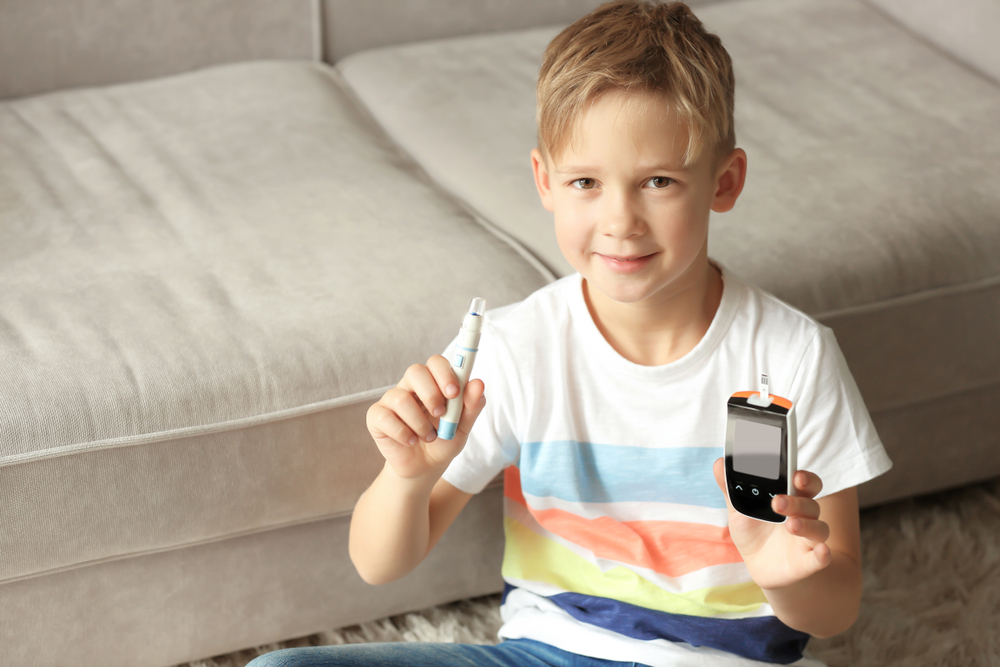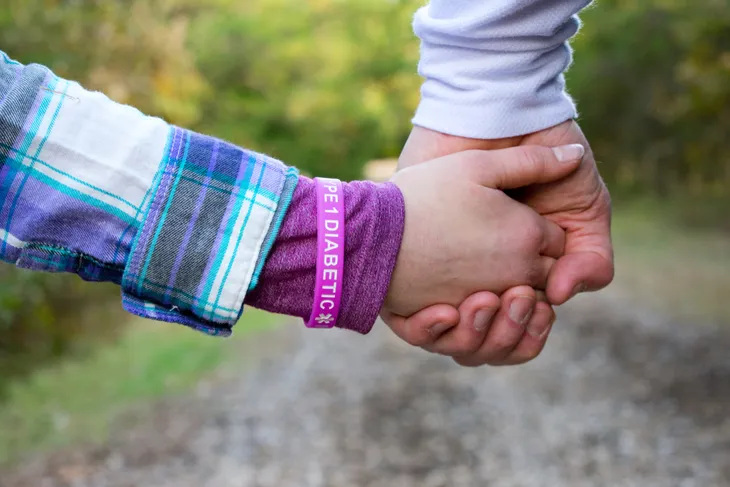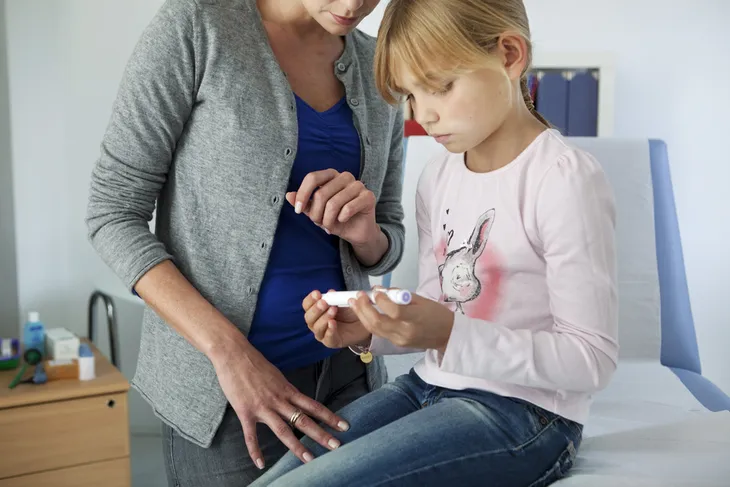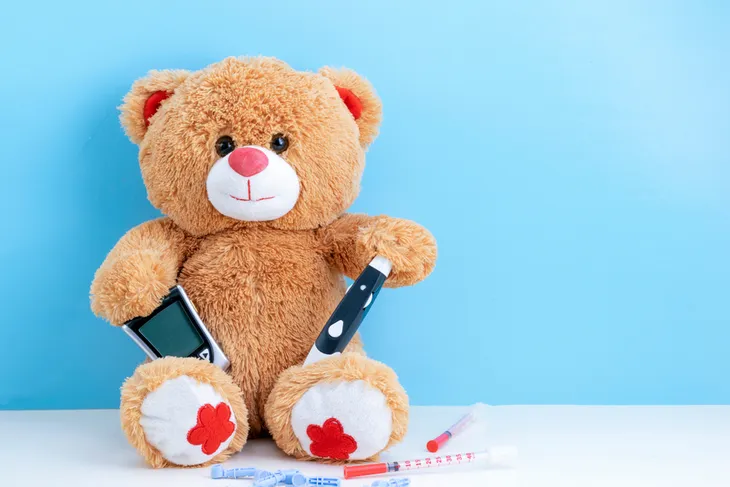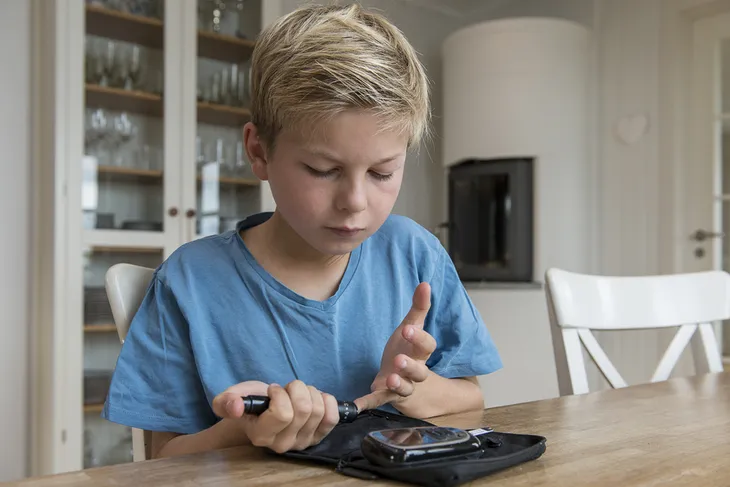Back when, we were called The Diabetes Police; then we were Helicopter Parents; and today we are fully automated as Drone Parents. In reality, we’re just parents. The ones who hover over their child as they deal with their day-to-day diabetes management.
As a parent of two children with type 1 diabetes, here’s my advice on why it’s important to involve your child in their own diabetes care…
Want diabetes content delivered straight to your inbox? Sign up for our Diabetes newsletter and receive exclusive news and articles written from our team of diabetes experts.
An Important Lesson
When Kaitlyn was in her first years of diagnosis, probably at age 5 or so, a young woman who lived with type 1 diabetes (T1D) would change my life. Mindy shared with me that from the day she was diagnosed, her parents took care of everything regarding her diabetes. EVERYTHING! This was in the days before pumps and CGMs (continuous glucose monitors), her parents would check her blood sugar, dose out her medication, and inject her. Her mom believed that she would be dealing with diabetes long enough in her life, so even though Mindy was at an age where she thought she could most certainly handle some of her daily management; her mom wouldn’t hear of it and did it all.
Mindy came home from school one day and her aunt met her at the front door. Instantly she knew something was gravely wrong. In a tragic car accident, both of Mindy’s parents were lost. She shared with me that to this day in her forties, she still is not convinced that she is not angrier that her parents were taken or angrier that she was then left all alone to handle her diabetes.
Now it’s pretty clear just how incredibly low the odds would be of that ever happening but as a reality check, it did.
It’s Your Child’s Diagnosis, Not Yours
Somewhere between this unfortunate extreme and understanding how much better off your child would be by knowing about their daily management is where you need to land. Mindy shared that this disease belongs to the child and not us, as parents. Now diabetes will impact us and we will cry and be upset but it is not ours, it is, indeed theirs. The biggest gift we can give them, is to help them fully understand the daily management of this disease because if they do not learn quickly enough that they should own their diabetes, their diabetes will surely own them. The most efficient way to start this process is to make sure you are giving your child choices they are able to make.
When Kaitlyn was just 6, we drew the medication into the syringe and laid it down. “Where do you want to inject yourself today? Your arm or your leg?” At first, she was a bit hesitant; but soon enough she started to inject herself where she chose.
Give Them a Choice
Choices. Step one. No matter what was said or done, it became a choice that she would make. “Do you want to check your blood sugar now so you can go out to play, or do you want to wait and go out and play later.” A few things were accomplished in this one sentence. First, we were teaching her the priority of knowing her blood sugar number and how it relates to her activities. Second, she was being taught that tending to her blood glucose must be a priority.
Get Creative
Now it’s important to remember that kids with diabetes are still just that, kids. It will not always be smooth sailing. Being creative becomes as important as knowing a carb to medication ratio. It’s so important to make our children’s lives a world of yeses and possibilities. Don’t live in a world of, “no.”
Don’t Banish Foods
The last thing we want to happen is that our kids look to ‘sneak stuff’ because we have made items so taboo. Recently in an online discussion, someone stated that they had their child’s ‘tasty’ snacks locked in a cabinet. These snacks were being given at times when their child was dealing with a low blood sugar.
The concern was that the child was beginning to sneak food out of the cabinet and they were at a loss on what to do. Firstly, I suggested, that they should take away the mystique and unlock the cabinet. Mix the ‘free food’ with the ‘sweeter foods’. Instead of saying only yes or no, your child will become too intrigued with ‘don’t touch’ food. (For more information, read our article on Foods All Type 1 Diabetics Should Be Eating.
Let Them Make the Decision
“What do you want? Okay, your number is 130 what happens if you take the candy bar?”
Well you will be out playing so what if we took half a candy bar and half a ‘free’ food, do you think that will work?”
As much as possible, let them be part of the decision process. Soon they will be doing it on their own and you will all be well on your way.
I am a DiabetesDad.
